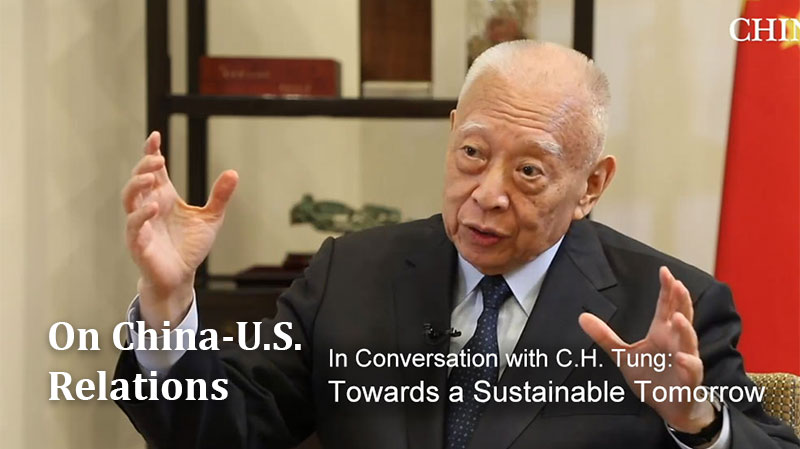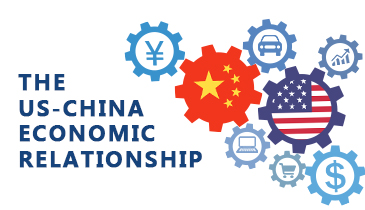Liang Qianyu, Doctoral Candidate at the Institute of Area Studies, Peking University
Zhai Kun, Professor at School of International Studies; Deputy Director of Institute of Area Studies, Peking University
May 11, 2023
Generally speaking, the relationship between China and Southeast Asian countries is positive, which adds a degree of certainty in an uncertain world. However, if President Ferdinand Marcos Jr. loses his way over the South China Sea and Taiwan, new uncertainty will come.
Lucio Blanco Pitlo III, President of Philippine Association for Chinese Studies, and Research Fellow at Asia-Pacific Pathways to Progress Foundation
Mar 24, 2023
The United States has gained expanded military access in the Philippines, including the renewal of the Enhanced Defense Cooperation Agreement (EDCA) and potential joint patrols in the South China Sea, which has raised concerns from some Filipino lawmakers and questions about the country's independent foreign policy. Additionally, there are worries about the speed and transparency of the expansion, as well as its impact on domestic politics and foreign relations with China and beyond.
Richard Javad Heydarian, Professorial Chairholder in Geopolitics, Polytechnic University of the Philippines
Mar 24, 2023
As the Philippines shifts its foreign policy strategy, it has become a pivotal player in both the Indo-Pacific and the West. While India has diverged from its Western partners, the Philippines is moving in the opposite direction, not taking “sides” by building stronger relations with other countries and seeking a strong positioning and cooperation with key nations.
Peng Nian, Director of Research Centre for Asian Studies, China
Feb 06, 2023
President Ferdinand Marcos Jr. of the Philippines described the challenge presented by the great power rivalry between the U.S. and China: “It keeps you up at night, keeps you up in the day, keeps you up most of the time. … It’s very dynamic, it’s constantly in flux, so you have to pay attention to it.”
Zhai Kun, Professor at School of International Studies; Deputy Director of Institute of Area Studies, Peking University
Feb 01, 2023
Relations between China and the Philippines have a direct bearing on stability in the South China Sea and peace in the wider Asia-Pacific region. Like waves in the sea itself, the situation fluctuates. But sensible leaders and a clear outline for settling disputes can prevent a breakdown.
Lucio Blanco Pitlo III, President of Philippine Association for Chinese Studies, and Research Fellow at Asia-Pacific Pathways to Progress Foundation
Jan 31, 2023
Hosting Philippine President Ferdinand Marcos Jr. was the opening act for China’s diplomatic efforts this 2023. As the Lunar New Year dawns, it is worth reflecting on what the visit meant for both countries.
Richard Javad Heydarian, Professorial Chairholder in Geopolitics, Polytechnic University of the Philippines
Jan 31, 2023
Philippine President Ferdinand Marcos Jr.’s visit to China set the tone for stronger Philippine-China relations in the upcoming years. However, the future of this bilateral relationship might encounter tensions in the face of developments in the Philippine-U.S. relationship and defense cooperation.
Lucio Blanco Pitlo III, President of Philippine Association for Chinese Studies, and Research Fellow at Asia-Pacific Pathways to Progress Foundation
Jan 19, 2023
Philippine President Ferdinand Marcos Jr.’s visit to Beijing may help set the tone for cordial bilateral ties with China, but could also stir wariness on the part of the country’s longstanding treaty ally, the United States. The Philippines must carefully navigate its position to avoid being seen as favoring either side.
Philip Cunningham, Independent Scholar
Dec 02, 2022
From student activist, to journalist, to a top diplomat, Jaime Florcruz is the man for the job. Given his unique and impressive history working and studying in China, and his expertise on America, it’s hard to imagine a better appointment for balancing the interests of both Manila and Beijing while not alienating Washington.
Richard Javad Heydarian, Professorial Chairholder in Geopolitics, Polytechnic University of the Philippines
Oct 14, 2022
The Phillipines geographic location has long made it a close trading partner to China, but a colonial history with the U.S. has left strong bonds with its century-old ally to this day. Now, as China and the U.S. talk themselves into more hostile territory, how the Philippines will navigate two of its most consequential relationships will be crucial to surviving any sort of escalation.
China-Philippines Relations

